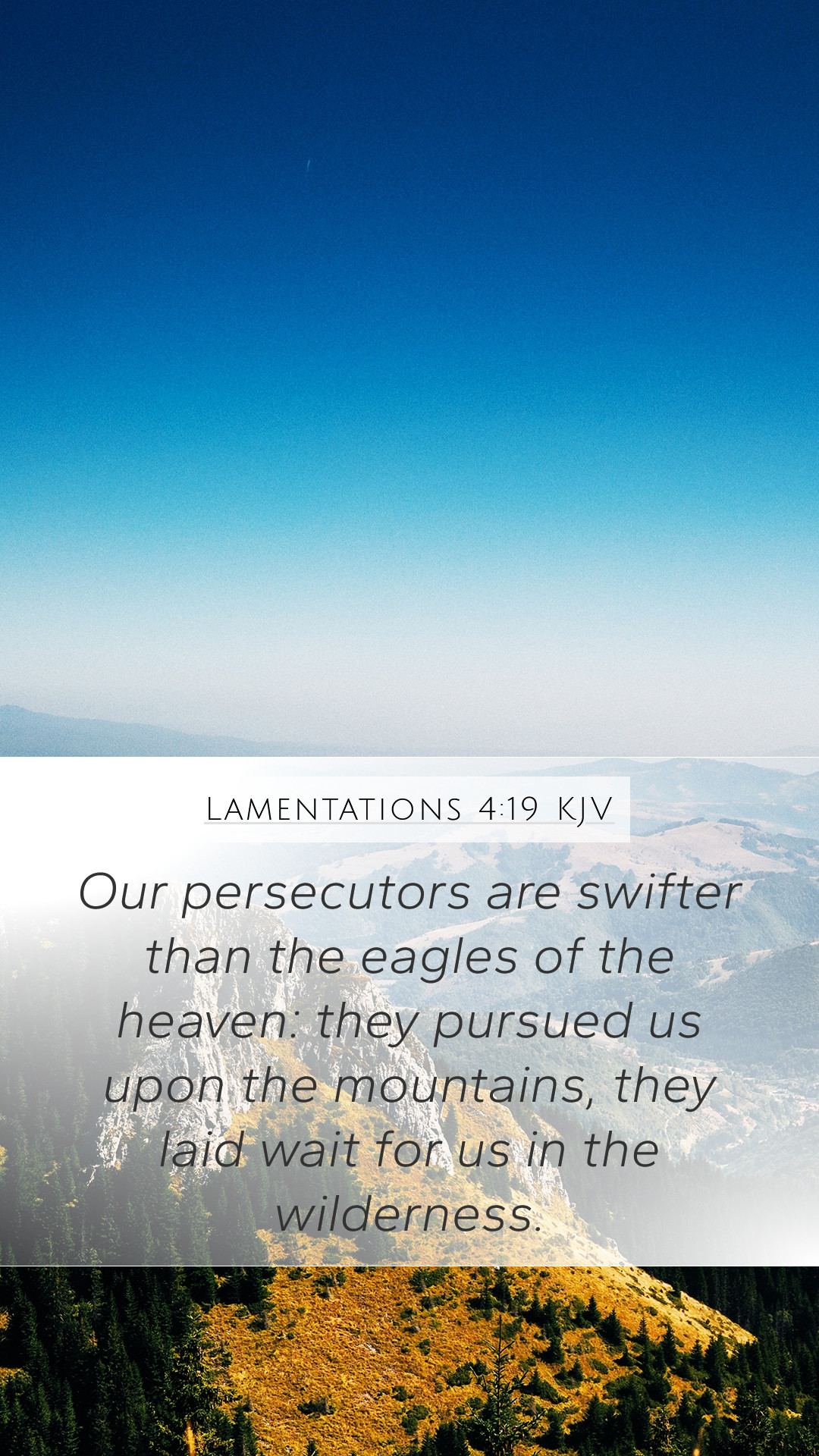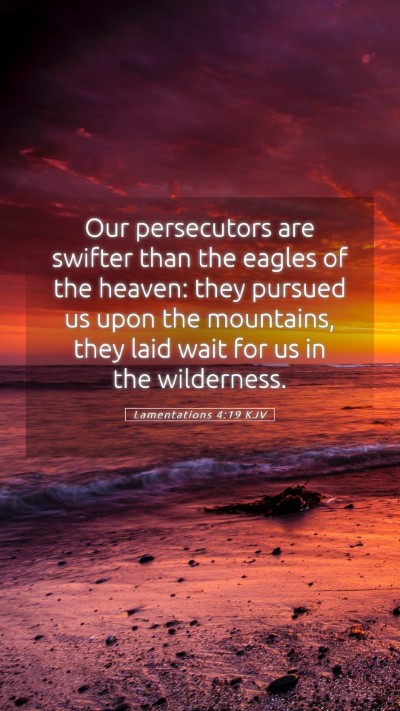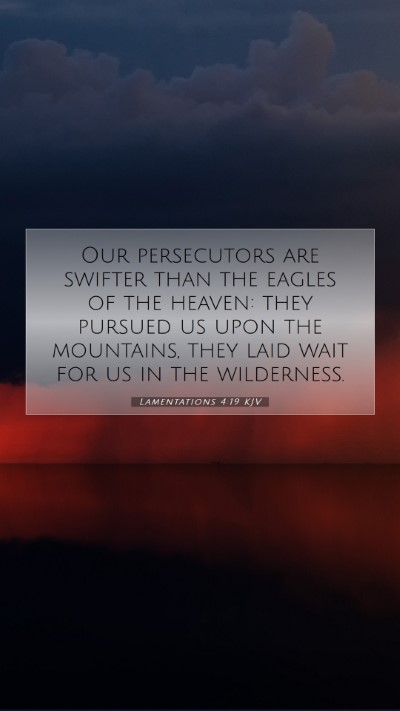Lamentations 4:19 Meaning and Interpretation
Lamentations 4:19 states:
"Our pursuers were swifter than the eagles of the sky; they chased us on the mountains and lay in wait for us in the wilderness."
This verse captures a vivid picture of desperation and despair in the context of the siege of Jerusalem and the resultant suffering of its people. Below, we explore several themes and insights derived from public domain commentaries by renowned biblical scholars.
Contextual Background
The Book of Lamentations is attributed to the prophet Jeremiah, written in response to the destruction of Jerusalem by Babylon in 586 BC. It reflects deep sorrow over the fall of the city and the suffering of its inhabitants. Lamentations 4 focuses specifically on the dire conditions experienced during the siege.
Key Themes and Insights
-
Speed of the Enemy:
Matthew Henry notes that the enemy, likened to eagles, represents the swiftness and ferocity of their pursuit. The imagery indicates that the people of Jerusalem were not only pursued but overwhelmed, unable to escape the swift judgment that had come upon them.
-
Symbolism of the Wilderness:
Albert Barnes emphasizes the wilderness as a symbol of desolation. It signifies not just a physical location but a spiritual state where the people feel abandoned by God. The pursuit in such an area intensifies their suffering.
-
Emotional Despair:
Adam Clarke highlights the emotional weight behind the verse. The lament is not merely historical but deeply personal, showcasing the heartache and hopelessness felt by those left to endure the ravages of war.
-
Historical Context:
This verse connects with the broader themes of suffering and divine judgment that permeate the Book of Lamentations. It serves as an indictment of the people's rebellion against God, leading to their present state.
Interpretation and Application
This verse, while rooted in a specific historical context, invites contemporary readers to reflect on the nature of divine judgment and mercy. It raises questions about the consequences of turning away from God and how such actions may lead to suffering, whether individually or collectively.
Applying Lamentations 4:19 to Daily Life
-
Reflection on Personal Battles:
Just as the people faced relentless pursuit, individuals today may find themselves in personal struggles. The verse encourages us to confront these challenges with and through the strength that faith provides.
-
The Role of Community:
In times of trial, believers are called to support one another, mirroring the need for solidarity seen among the victims of the siege in Jerusalem.
Bible Cross References
- Jeremiah 4:13: The swift and fierce nature of the enemy is mirrored in Jeremiah's earlier prophecy.
- Psalm 55:6-8: Similar themes of flight and longing for safety are reflected in this Psalm.
- Matthew 24:20: The mention of fleeing echoes the warnings of Jesus related to impending trials.
Conclusion
Lamentations 4:19 is a poignant reminder of the outcomes of disobedience and the longing for redemption. In engaging with this verse, readers can unravel the layers of human suffering and divine justice while finding pathways for personal and communal restoration.
For those seeking deeper Bible study insights, Lamentations stands as a critical text for understanding the gravity of sin and the hope embedded in God’s promises, encouraging believers to remain steadfast even amidst the trials of life.


